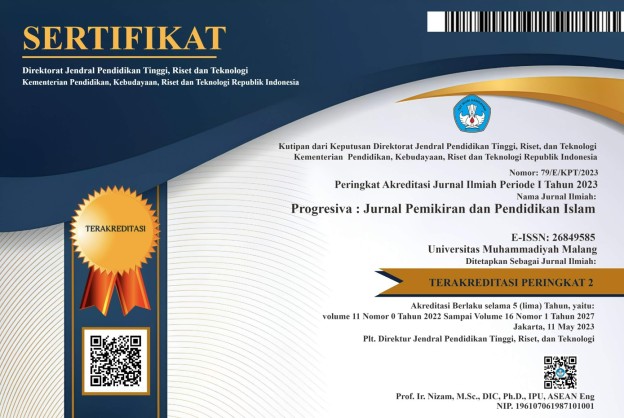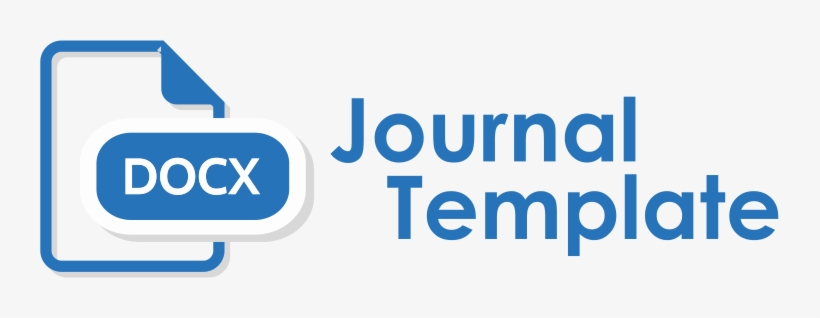The Distribution of Service Rights Using Civic Pluralism Approach: A Case of Penghayat Kepercayaan in Ponorogo Regency
DOI:
https://doi.org/10.22219/progresiva.v12i02.29970Keywords:
Service Rights, Penghayat Kepercayaan, Civic Pluralism, Ponorogo RegencyAbstract
This research examines the distribution of service rights for Penghayat Kepercayaan adherents in Ponorgo. This region is important because it was the venue for the 5th Indonesian Kebatinan Congress in June 1963. Through the approach of civic pluralism, especially related to the politics of redistribution, this research wants to analyze the problem of distribution of service rights for education, marriage, and death services for Penghayat Kepercayaan adherents in Ponorogo Regency, East Java. This is important because among the main elements of the idea of civic pluralism are state policies and social consensus at the community level to respond to differences and resolve frictions between communities that inevitably arise due to differences between them. This research is qualitative with library and field data collection techniques. The data collected is then analyzed using descriptive analysis method. The result of this research shows that the distribution of service rights of Penghayat Kepercayaan in Ponorogo has not been effective. There are internal and external factors related to this. Among these internal factors are: the individuals of the Penghayat Kepercayaan who are difficult to expose themselves; the fear of being alienated by their communities who adhere to other religions; and the lack of organizational awareness for the youth of Penghayat. These internal factors consequently impact external factors, whereby the Ponorogo Regency Government struggles to distribute service rights for Penghayat Kepercayaan in the fields of education, marriage, and death services.
Downloads
References
Abidin, Z., Rosyid, M., Ersad, Y., & Viri, K. (2019). The State, Indigenous Religions, and Inclusive Citizenship. The First International Conference On Indigenous Religions.
Adinegoro, D. S. (2019). Struktur Organisasi HPK Ponroogo. HPK.
Adinegoro, D. S. (2023). Wawancara dengan Ketua HPK Dharmanto Soerya Adinegoro.
Amindoni, A. (2020). Sunda Wiwitan: Pembangunan Makam Dilarang Karena “Khawatir Musyrik”, Masyarakat Adat Keluhkan “Diskriminasi di Rumah Sendiri.” BBC News Indonesia. https://www.bbc.com/indonesia/indonesia-53505078
Bagir, Z. A. (2016). Pengantar. In Pasang Surut Rekognisi Agama Leluhur dalam Politik Agama di Indonesia. CRCS UGM.
Bagir, Z. A., Dwipayana, A., Rahayu, M., Sutanto, T., & Wajidi, F. (2011). Pluralisme Kewargaan: Arah Baru Politik Keragaman Di Indonesia. CRCS UGM-Mizan.
Banu, S. (2018). Majelis Luhur Kepercayaan Terhadap Tuhan Yang Maha Esa Indonesia: Wadah Baru Bagi Para Penghayat Kepercayaan. NewsLab UAJY. http://newslab.uajy.ac.id/2018/12/11/majels-luhut-kepercayaan-terhadap-tuhanyang-maha-esa-indonesia-wadah-baru-bagi-para-penghayat-kepercayaan/
Budijanto, O. W. (2016). Penghormatan Hak Asasi Manusia Bagi Penghayat Kepercayaan Di Kota Bandung. Jurnal HAM, 7(1), 35. https://doi.org/10.30641/ham.2016.7.69
Damami, M. (2011). Kepercayaan terhadap Tuhan Yang Maha Esa pada Periode 1973-1983: Sebuah Sumbangan Pemahaman tentang Proses Legalisasi Konstitusional dalam Konteks Pluralitas Keberagamaan di Indonesia. Kementerian Agama RI.
Hannan, A., & Abdillah, K. (2019). Penghayat Kepercayaan dan Kebebasan Beragama: Menelusuri Hak Sosial Kebebasan Beragama Penganut Kepercayaan Ditinjau dari Perspektif Sosiologi Agama. The First International Conference on Indigenous Religions.
Hanuri, N. (2023). Wawancara Kepala Dinas Pendidikan Ponorogo. https://drive.google.com/drive/folders/1321RoNwMraVc0eMZt7H3trmp6cQmipAj?usp=share_link
Hefner, R. W., Ali-Fauzi, I., & Bagir, Z. A. (2014). Mengelola Keragaman dan Kebebasan Beragama di Indonesia Sejarah, Teori dan Advokasi. Program Studi Agama dan Lintas Budaya, Universitas Gadjah Mada.
Humaidi, M. W. (2020). Politik Hukum Mahkamah Konstitusi Atas Rekognisi Penghayat Kepercayaan dalam Kontestasi Politik Kewargaan Indonesia. Al-Daulah, 9(1).
Indonesia, R. (1974). Undang-undang Nomor 1 tahun 1974 tentang Perkawinan. Lembaran Negara Republik Indonesia Tahun.
Kurniawan, F. (2020). Seberapa Banyak Jumlah Penghayat Kepercayaan di Indonesia? Tirto.Id. https://tirto.id/seberapa-banyak-jumlah-penghayat-kepercayaan-di-indonesia-cz2y
Maarif, S. (2014). Being a Muslim in Animistic Ways. Al-Jāmi‘ah: Journal of Islamic Studies, 52 (1), 149-174
Maarif, S. (2017). Pasang Surut Rekognisi Agama Leluhur dalam Politik Agama di Indonesia. CRCS UGM Yogyakarta.
Maarif, S. (2019). Indigenous Religion Paradigm: Re-Interpreting Religious Practices of Indigenous People. Rethinking Religious Pluralism in Asia: India-China- Indonesia, 103–121.
Maarif, S., Mubarok, H., Sahroni, L. F., & Roessusita, D. (2019). Merangkul Penghayat Kepercayaan Melalui Advokasi Inklusi Sosial.
Muslimin, JM. (2015). Shari’a, Indigenous Wisdom and Human Rights: A Brief Review of Human Rights Enforcement in the Context of Indonesian History. Journal of Indonesian Islam, 9 (2), 123-150.
Nadlir, M. (2017). Ada 187 Kelompok Penghayat Kepercayaan yang Terdaftar di Pemerintah. Dirketorat Kepercayaan Terhadap Tuhan Yang Maha YME Dan Masyarakat Adat. https://kebudayaan.kemdikbud.go.id/ditkma/kliping-budaya-ada-187-kelompok-penghayat-kepercayaan-yang-terdaftar-di-pemerintah/
Nusantara, A. M. A. (2017). Apa Itu Aliansi Masyarakat Adat Nusantara? Aman.or.Id. http://www.aman.or.id/profile-kami/
Program Studi Agama dan Lintas Budaya. (2008). Laporan Tahunan Kehidupan Beragama di Indonesia Tahun 2008.
Rochmad, R., Setiawan, M. N. H., Pradhana, F. R., & Untung, S. H. (2021). Dinamika Perkembangan Aliran Kepercayaan di Kecamatan Pudak Kabupaten Ponorogo. Kalimah: Jurnal Studi Agama Dan Pemikiran Islam, 19(1), 117. https://doi.org/10.21111/klm.v19i1.6369
Rofiq, A. C. (2014). Kebijakan Pemerintah terkait Hak Sipil Penghayat Kepercayaan dan Implikasinya terhadap Perkembangan Penghayat Kepercayaan di Ponorogo. Kodifikasia, 8(1), 1–22.
Siagian, T. (2022). Implementasi Peraturan Menteri Nomor 27 Tahun 2016 tentang Layanan Pendidikan terhadap Kepercayaan Tuhan Yang Maha Esa pada Satuan Pendidikan Tingkat SMA. Journal Lex Justitia, 4(1), 14–28.
Sulaiman. (2018). Problem Pelayanan terhadap Kelompok Penghayat Kepercayaan di Pati, Jawa Tengah. Jurnal SMaRT, 04(02), 207–220.
Viri, K. (2019). Menelusuri Diskriminasi Terhadap Pemeluk Kepercayaan Kawruh Naluri/KWN Di Gombong-Kebumen, dan Desa Banjarpanepen-Banyumas. The First International Conference on Indigenous Religion.
Viri, K., & Febriany, Z. (2020). Dinamika Pengakuan Penghayat Kepercayaan di Indonesia. Indonesian Journal of Religion and Society, 2(2). https://doi.org/10.36256/ijrs.v2i2.119
Walliman, N. (2006). Social Research Methods. SAGE Publications.
Downloads
Published
How to Cite
Issue
Section
License
Copyright (c) 2023 Harda Armayanto, Maria Ulfa , Adib Fattah Suntoro , Indra Indra

This work is licensed under a Creative Commons Attribution-ShareAlike 4.0 International License.


















